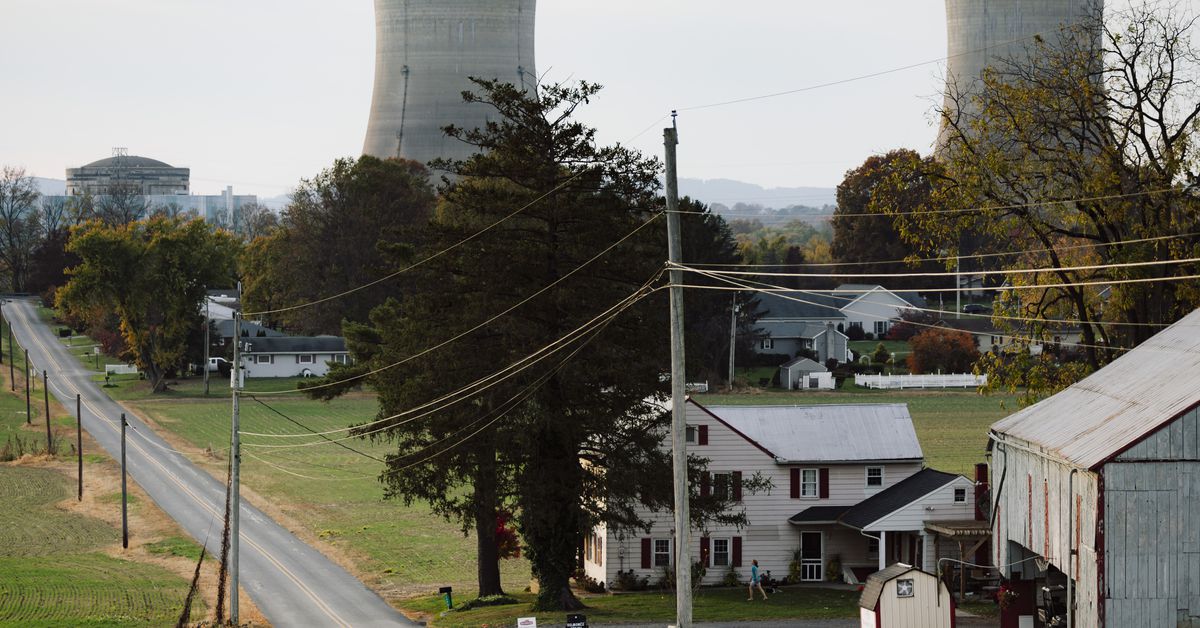The General Services Administration (GSA), which oversees government buildings and facilities, has announced a significant nuclear energy contract. This major deal comes on the heels of several prominent tech companies making substantial investments in nuclear energy over the past year.
A 10-Year, $840 Million Contract for Nuclear Energy
The GSA has awarded Constellation, the nation’s largest operator of nuclear power plants, a 10-year, $840 million contract for the provision of 10 million megawatt-hours (MWh) of electricity. According to the agency, this amount is equivalent to meeting the energy needs of over 1 million homes annually. Nuclear energy will comprise approximately 4 million MWh, or about half, of the total contracted energy, according to Constellation spokesperson Paul Adams.
Nuclear Energy Gaining Ground in Silicon Valley
The increasing interest in nuclear energy from major tech companies, particularly those in Silicon Valley, is a notable trend. These companies are turning to nuclear energy as they seek to meet the growing demand for electricity from their AI data centers. As the largest consumer of energy in the country, the federal government’s involvement in this contract is a significant boost to the nuclear industry.
A Turning Point for Nuclear Energy
"This agreement is another powerful example of how things have changed," said Joe Dominguez, Constellation president and CEO, in a press release. "Frustratingly, nuclear energy was excluded from many corporate and government sustainable energy procurements. Not anymore." The US government’s commitment to supporting continued investment in reliable nuclear energy will allow Constellation to relicense and extend the lives of its critical assets.
Constellation’s Commitment to Carbon-Free Energy
Constellation generates 10 percent of the nation’s carbon pollution-free energy, with a majority coming from nuclear power plants. In addition to nuclear energy, the company also produces hydroelectric, wind, and solar power. Constellation has set a goal of reaching 100 percent carbon-free electricity by 2040, up from close to 90 percent today.
Contract Breakdown
The contract will allow Constellation to extend licenses for existing nuclear power plants as well as invest in new equipment and technology that should result in an additional 135 megawatts (MW) of capacity. The GSA has agreed to purchase 2.4 million MWh of electricity from this added capacity over the 10-year term.
Government Agencies Involved
The contract will benefit not only government buildings but also extend to 13 other agencies, including:
- Department of Veterans Affairs
- Department of Transportation
- Federal Bureau of Prisons
- National Park Service
- Social Security Administration
- US Mint
A Stable Energy Supply for the Future
The GSA is framing this contract as a way to lock in more affordable prices as data centers and AI facilities drive up electricity demand. By keeping their electricity costs fixed for 10 years, federal agencies will gain budgetary stability and protection from future price increases.
The Rise of Nuclear Energy in the US
Google, Meta, Amazon, and Microsoft have all made significant investments in nuclear energy over the past year. In September last year, Microsoft and Constellation announced a plan to restart a shuttered reactor at Three Mile Island in Pennsylvania.
The Biden Administration’s Commitment to Nuclear Energy
The Biden administration has made nuclear energy a key part of its plan to transition the US away from fossil fuels. Last October, the Department of Energy announced a $1.52 billion loan to help restart a retired nuclear generating station in Covert Township, Michigan.
Conclusion
This major contract marks a significant turning point for the nuclear industry, as it demonstrates the federal government’s commitment to supporting continued investment in reliable nuclear energy. As the demand for electricity continues to grow, particularly from data centers and AI facilities, this contract will provide stability and protection for federal agencies while bolstering the domestic nuclear industry.

























